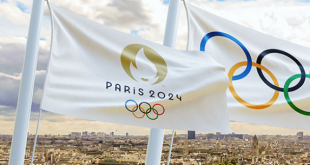Introduction to SEA Games and its host country
The thrill of the SEA Games is about to sweep through the vibrant streets of George Town, as Penang eagerly embraces the opportunity to co-host this prestigious sporting event. With a rich tapestry of culture and a passion for sports running deep in its veins, Penang stands poised to make waves in the world of athletics. Let’s dive into how this collaboration is set to elevate both sports development and tourism in this dynamic Malaysian state!
Benefits of Hosting the SEA Games for Penang
Hosting the SEA Games presents a golden opportunity for Penang to showcase its capabilities on an international stage. The influx of athletes, officials, and spectators will not only bring vibrancy to the city but also boost its global reputation as a sports hub.
With increased exposure comes enhanced infrastructure development, benefiting both athletes and residents in the long run. This investment in sports facilities can leave a lasting legacy that continues to drive local athletic talent forward.
Moreover, hosting such a prestigious event can stimulate economic growth through increased tourism and commercial activities. The spotlight on Penang during the SEA Games can attract investors and businesses looking to capitalize on the region’s newfound prominence.
Being a co-host of the SEA Games holds immense potential for Penang to elevate itself as a premier destination for sports, tourism, and economic opportunities alike.
Challenges that Penang may face as a co-host
As Penang steps up to co-host the SEA Games, it is undeniable that challenges will come hand in hand with this prestigious opportunity. One major obstacle could be ensuring all venues and facilities meet international standards for such a grand sporting event. From upgrading existing infrastructure to constructing new facilities, the pressure is on to deliver top-notch amenities for athletes and spectators alike.
Another challenge may lie in managing logistics and transportation efficiently during the games. With increased traffic flow and accommodation demands, meticulous planning will be crucial to prevent any disruptions or delays that could tarnish the overall experience. Furthermore, coordinating with multiple stakeholders, including other hosting cities, sports bodies, and government authorities adds another layer of complexity.
Penang will need to navigate through potential budget constraints effectively while aiming for a flawless execution of the games. Adapting to unforeseen circumstances and maintaining flexibility throughout the planning process will be key in overcoming these challenges seamlessly.
Plans for sports development in Penang leading up to the SEA Games
Excitement is brewing in Penang as plans for sports development leading up to the SEA Games take shape. The state government, led by Chief Minister Daniel Gooi Zi Sen, has outlined ambitious initiatives to enhance existing sports facilities and infrastructure. These upgrades aim to not only support local athletes but also leave a lasting legacy for future generations.
In collaboration with national sports bodies, Penang is set to invest in training programs and talent identification schemes. By nurturing young athletes and providing them with world-class facilities, the state aims to boost its medal prospects at the upcoming SEA Games. Additionally, partnerships with private sectors are being explored to ensure sustainable funding for long-term sporting success.
The focus extends beyond traditional sports, with plans to introduce new disciplines and promote inclusivity among all communities. Through grassroots initiatives and outreach programs, Penang seeks to ignite a passion for sports among its residents while fostering a culture of health and wellness. With these proactive measures in place, Penang is poised to leave a mark on the regional sporting landscape come SEA Games time.
Potential impact on the economy and tourism in Penang
Hosting the SEA Games in Penang is not only a significant opportunity for sports development but also has the potential to boost the local economy and tourism industry. With international athletes, officials, and spectators descending upon the city, there will be a surge in demand for accommodation, dining, transportation, and entertainment services. This influx of visitors can lead to increased revenue for businesses across various sectors.
Furthermore, showcasing Penang as a co-host of this prestigious event can enhance its reputation on a global scale. The exposure gained from hosting such a major sporting event can attract more tourists in the future who want to explore the vibrant culture and picturesque landscapes that Penang has to offer.
The economic impact extends beyond just temporary gains during the games; it can create long-term opportunities for growth and investment in infrastructure and facilities that benefit both locals and visitors alike. As excitement builds leading up to the SEA Games, anticipation grows for how this event will leave a lasting legacy on Penang’s economy and tourism sector.
Comparison with previous co-hosting experiences in Malaysia
Penang’s decision to co-host the SEA Games brings to mind Malaysia’s previous experiences with joint hosting. In 2001, Kuala Lumpur successfully co-hosted the games with other cities like Shah Alam and Malacca, showcasing unity and cooperation among different regions. The shared responsibility allowed for a more extensive spread of events and facilities across multiple locations, providing athletes and spectators with diverse experiences.
On the flip side, challenges such as logistical coordination and communication between host cities arose during this multi-venue setup in Malaysia. Ensuring seamless transportation and consistent standards across venues posed some hurdles that required careful planning and execution. Despite these challenges, the collaboration among host cities ultimately contributed to a successful event that celebrated sportsmanship on a national scale.
As Penang steps into its role as a co-host for the upcoming SEA Games alongside George Town, drawing from past experiences in Malaysia can offer valuable insights into effective strategies for organizing a large-scale sporting event efficiently. Through learning from both successes and challenges encountered previously, Penang has an opportunity to tailor its approach to ensure a memorable experience for all participants involved in the games.
Conclusion: The future of sports development in Penang through hosting the SEA Games
The decision for Penang to co-host the SEA Games opens up a world of opportunities for sports development in the state. With a strong focus on infrastructure upgrades, talent development programs, and increased exposure to international sporting events, Penang is poised to become a hub for sports excellence in Malaysia.
By leveraging the momentum generated by hosting the SEA Games, Penang can attract more investments in sports facilities, training centers, and grassroots initiatives. This will not only benefit athletes and sports enthusiasts but also contribute to the overall health and well-being of its residents.
As we look forward to witnessing an exciting edition of the SEA Games hosted by George Town and mainland Kedah state, it is evident that this partnership will leave a lasting legacy for sports development in Penang. The future looks bright as Penang embraces this opportunity to showcase its potential on a regional stage and solidify its position as a key player in Malaysia’s sporting landscape.
 Basah Jeruk Tv3
Basah Jeruk Tv3


